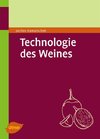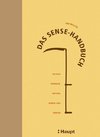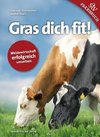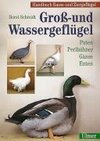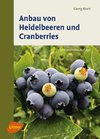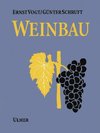
-
 Anglický jazyk
Anglický jazyk
Principles Of Analytical & Instrumental Techniques
Autor: Premasis Sukul
This is to serve as a valuable text- and reference book to the undergraduate and postgraduate students, and researchers in the field of agriculture, horticulture, food science, home science, forestry, biochemistry, biotechnology, agricultural chemicals and... Viac o knihe
1 kus skladom u vydavateľa Posielame do 7-10 dní
252.91 €
bežná cena: 287.40 €
O knihe
This is to serve as a valuable text- and reference book to the undergraduate and postgraduate students, and researchers in the field of agriculture, horticulture, food science, home science, forestry, biochemistry, biotechnology, agricultural chemicals and other allied fields.The book contains 9 different chapters, precisely and comprehensively covering various analytical and instrumental techniques. The chapters 1-3 of the book describe the fundamental aspects which are most important for the learners to know and to conduct any experiment in chemical and biochemical fields. The remaining chapters emphasize on various advanced techniques that are employed for separation of individual components from a mixture of substances, and their qualitative and quantitative estimation.Chapter 1 deals with the basic concepts on acid-base theories, pH, and buffer solution preparation and the mechanism of its action. Chapter 2 provides the preliminary knowledge on standard solutions and their preparations, and various titrimetric methods. Chapter 3 provides a glimpse on indicator chemistry: their types, mechanism and indicator solution preparation. Chapter 4 comprehensively explores centrifugation technique, its principle and types, rotors, etc. Chapter 5 introduces the readers to different types of electrophoresis technique used primarily for biochemical analysis including their principles and applications. Chapter 6 deals with various spectroscopic techniques that include basic theory of spectrophotometry, UV-VIS spectrophotometry, fluorimetry, nephelometry and turbidimetry, infrared spectroscopy, atomic absorption spectroscopy, flame photometry and atomic fluorescence spectroscopy along with their applications. Chapter 7 concentrates on mass spectrometry with a detailed explanation on various sources of ionization and mass analyzers. Chapter 8 pertains to various chromatographic separation procedures including paper chromatography, thin layer chromatography, column chromatography, ion exchange chromatography, gel filtration chromatography, affinity chromatography, high performance liquid chromatography and gas liquid chromatography. Each type of chromatographic separation technique includes their basic principle, instrumentation and applications. Lastly, Chapter 9 covers the importance and application of radioisotopes, types of particles and their properties, radioactive decay and disintegration rate, interactions of radiations with matter, radioactivity detection techniques and their instrumentation etc.Each chapter of the book contains a few model questions to help the learners self-assess their grasp of the subject as well as practice the frequently asked questions in various competitive examinations. Necessary references have been incorporated to motivate readers for further exploration.
- Vydavateľstvo: NEW INDIA PUBLISHING AGENCY- NIPA
- Rok vydania: 2022
- Formát: Hardback
- Rozmer: 235 x 157 mm
- Jazyk: Anglický jazyk
- ISBN: 9789391383923

 Nemecký jazyk
Nemecký jazyk 

